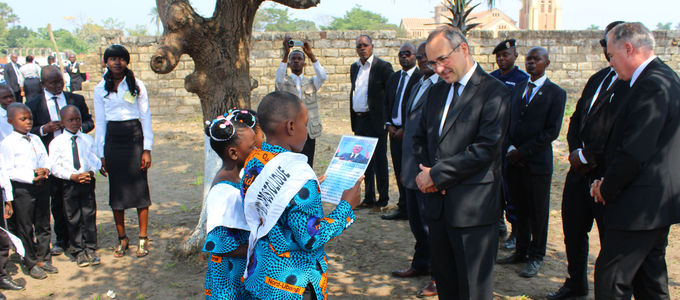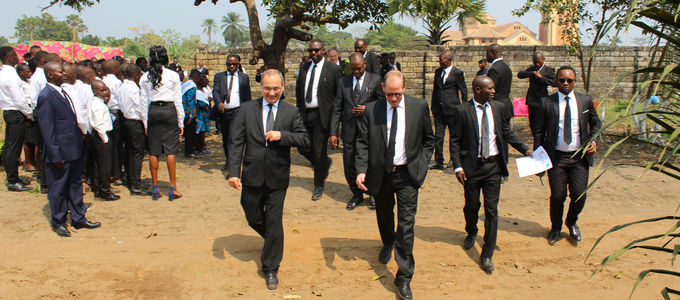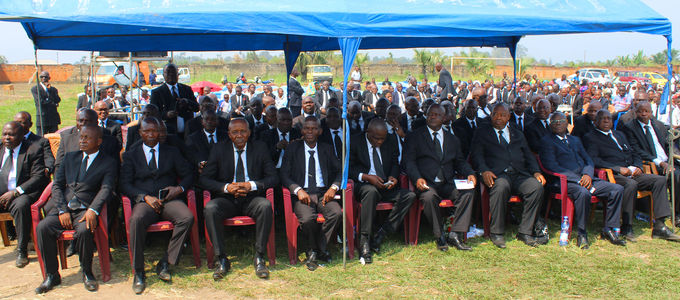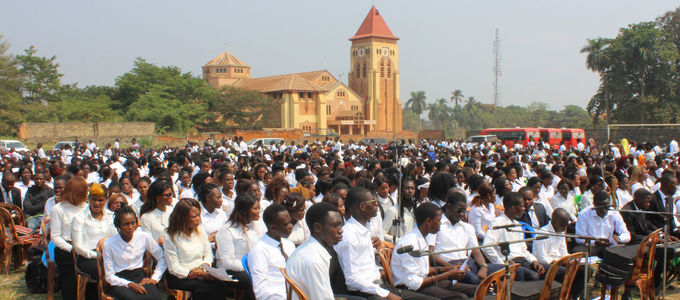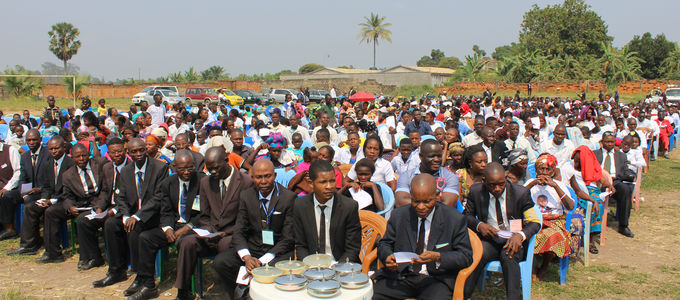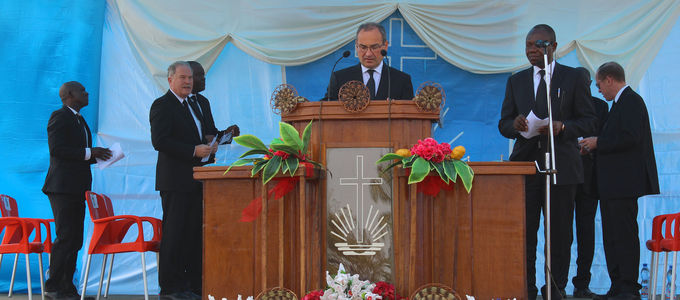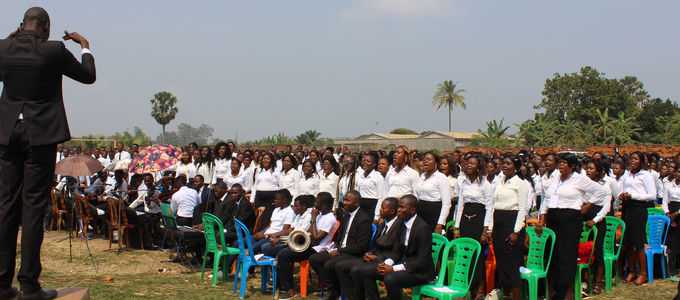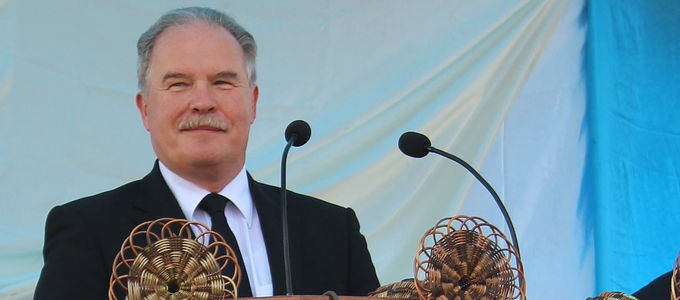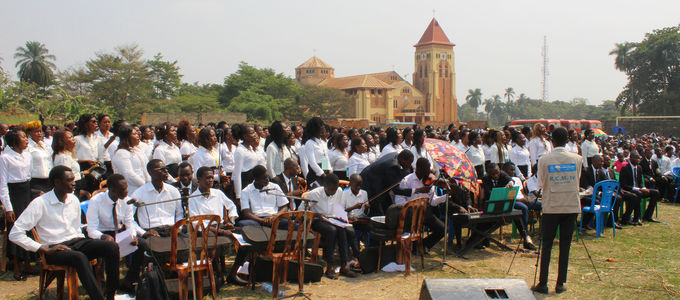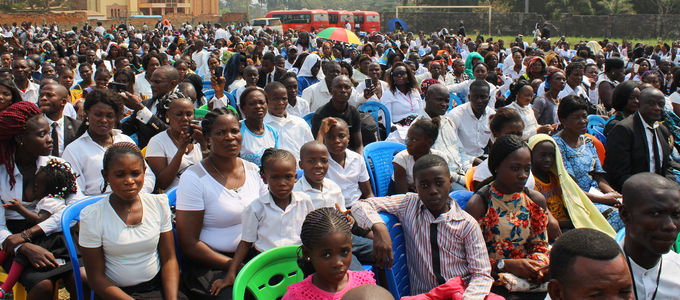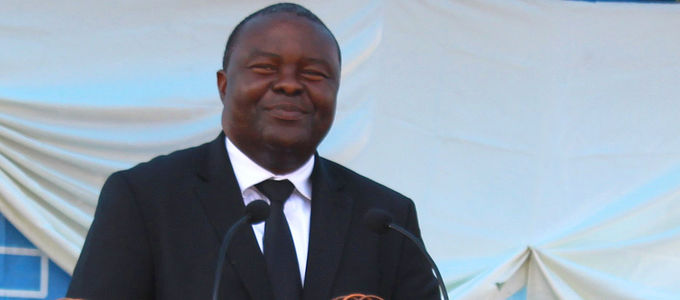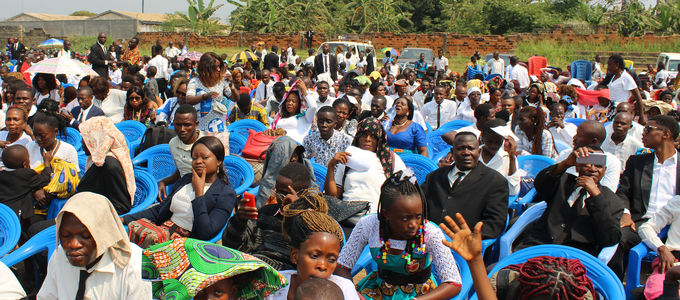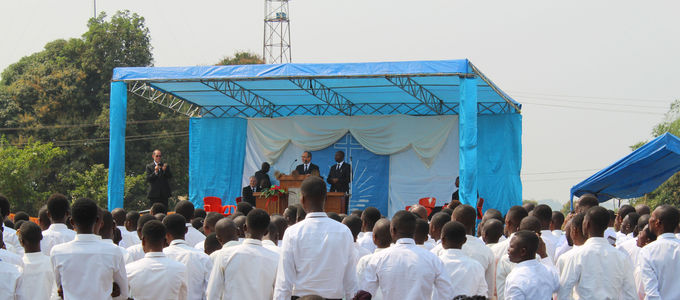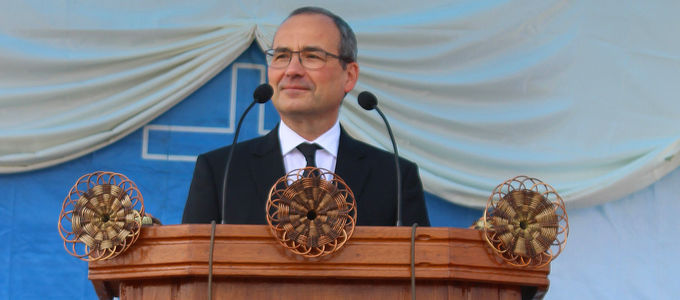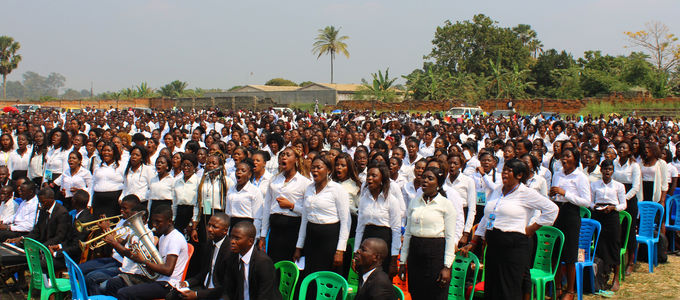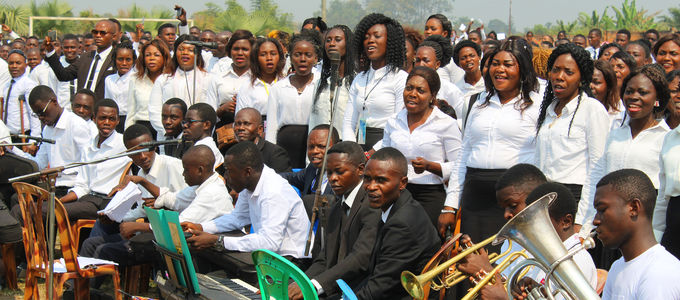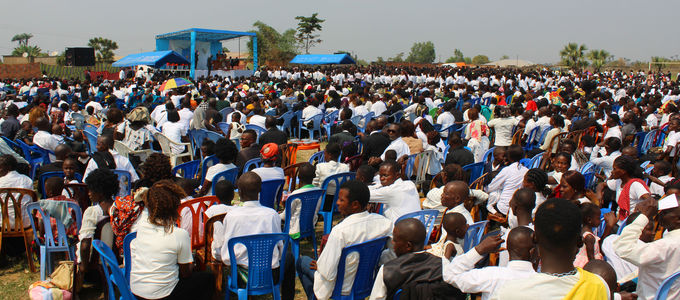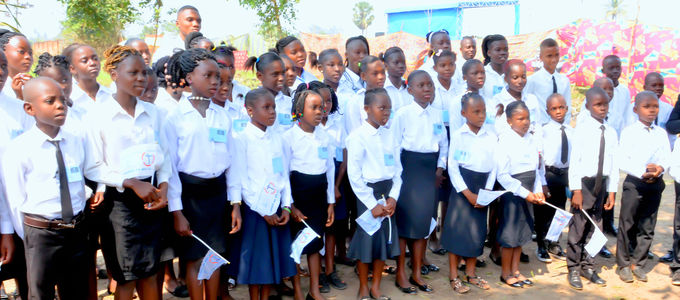
Are there any commonalities between the Israelites who made their way out of Egypt some 3,000 years ago and the Christians of the 21st century? Chief Apostle Schneider elaborates on the parallels and makes some very clear statements about witchcraft, capitalism, and egocentricity.
On his trip to the Democratic Republic of Congo, Chief Apostle Jean-Luc Schneider conducted two divine services, and gathered together with the Apostles and Bishops of the country for a national meeting. On Sunday, 6 July 2019, he preached to the believers in Inkisi. He based his remarks on a passage from Exodus 15: 2: “The Lord is my strength and song, and He has become my salvation; He is my God, and I will praise Him; my father’s God, and I will exalt Him.”
We give thanks to God
After Moses and the people had crossed the Red Sea, they sang a hymn: “The Lord is my strength.” With their song they gave thanks to God for His help. “They were aware,” said the Church leader, “that God had liberated them from the yoke of the Egyptians. Only He was able to deliver them.” God had made them His people, and ultimately, God was faithful to the promise He had made to Abraham, Isaac, and Jacob—and led the people into the Promised Land.
Here Chief Apostle Schneider established a parallel to the present: “The people of today are likewise captives. They are captive to sin and remoteness from God. Through His life and death, Jesus Christ has made deliverance possible.” And there were two other commonalities: “God has elected us to become His children—His elected people! And God grants us the opportunity to inherit His kingdom,” said the Church leader. “Jesus said, ‘I will come again and receive you to Myself; that where I am, there you may be also.’ That is the reason we worship and praise God.”
We worship God
“From awareness and gratitude follow deeds,” summarised Chief Apostle Schneider.
- Giving thanks together: “We pray and praise God by meeting regularly in divine service in order to worship and praise God together.”
- Bringing our offerings: “We cannot pay for our redemption, but we always have a reason to bring our offerings, namely in order to thank God for the redemption He offers us.
- Doing good works: “Jesus died in order to deliver us from sin, and we strive not to fall back into sin. What good is it that Jesus died for us, if we continue to do evil works and fail to make use of His power to conquer evil?”
We accept our election
“As the chosen people, Israel was to fear God by heeding all of His commandments, abstaining from the worship of idols, and loving God with all their hearts, with all their souls, and with all their strength,” explained the Chief Apostle. And here too there are parallels to the present:
- keep the commandments: “God asks us to keep all the commandments. The epistle of James tells us that ‘whoever shall keep the whole law, and yet stumble in one point, he is guilty of all.’”
- do not worship idols: “When we have a problem in our lives, and we ask God to help us, there are times when we are not sure whether God will actually come to our aid, or when things do not move quickly enough. At such times we might go to the witch doctor or the medicine man and say, ‘Maybe that will work.’ But there is another idol that is far more dangerous—and that is money!” Very specifically, “In order to have money, far too many brothers and sisters are prepared to lie, to write things that are false, or to forget about the law of love for their neighbour.”
- love God with all our hearts: “This is what it means to love God: we renounce our own convictions and our own thoughts in order to align ourselves with Jesus Christ. He is our God. We fear Him. We take His word seriously. Let us not have any other gods besides Him! Let us be prepared to do without certain things, just in order to be with God.”
We proclaim the glory of God
“Like the people of Israel, we too are called upon to exalt God by proclaiming His glory,” said the Chief Apostle.
- It is God who enables us to do good works: “We do good works—and we tell people who has made it possible for us to do these works: thanks to Jesus we can do these things. It is not our merit—it is His merit!”
- We forgive as God forgives: “The forgiveness of Jesus is so great for me, and I am so happy, that I gladly forgive my neighbour! In so doing we glorify our God and share His wealth with our neighbour!”
- We contribute to the salvation of our neighbour: “We also want other souls to be delivered, be it here on earth or among the departed in the beyond. We tell them, ‘Come to Jesus, and take this treasure!’ We are not afraid that we will have less as a result. We are so rich in Christ that we can share our wealth. It will not diminish.”
Background:
At the start of the divine service, Chief Apostle Schneider referred briefly to his arrival in Inkisi: “When I arrived, I saw this very beautiful cathedral, and I would like to take this opportunity to thank all the missionaries and all those who came to Africa so long ago in order to spread the Christian faith. Let us never forget that this is thanks to these men and women, who came long, long ago to bring the Christian faith to Africa out of love for the Lord. Long before the New Apostolic Apostles came, these men and women arrived here in order to bring the glad tidings of Jesus Christ to your country, and we owe them a great deal. We thank them. We honour them and also pray for these early missionaries, that God may also grant them His peace and blessing in the beyond.” — Depicted in the background of the photos is the cathedral “Our Lady of Seven Sorrows”, which was built by Belgian Jesuits in Kisantu in 1926.






